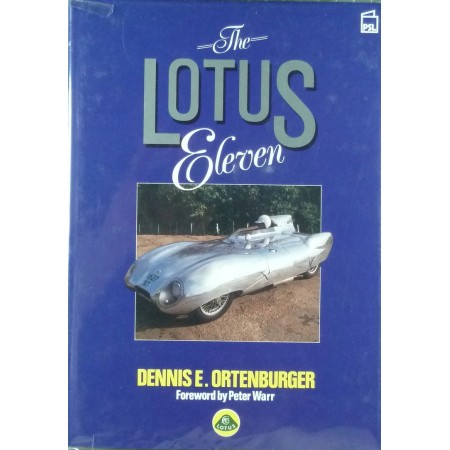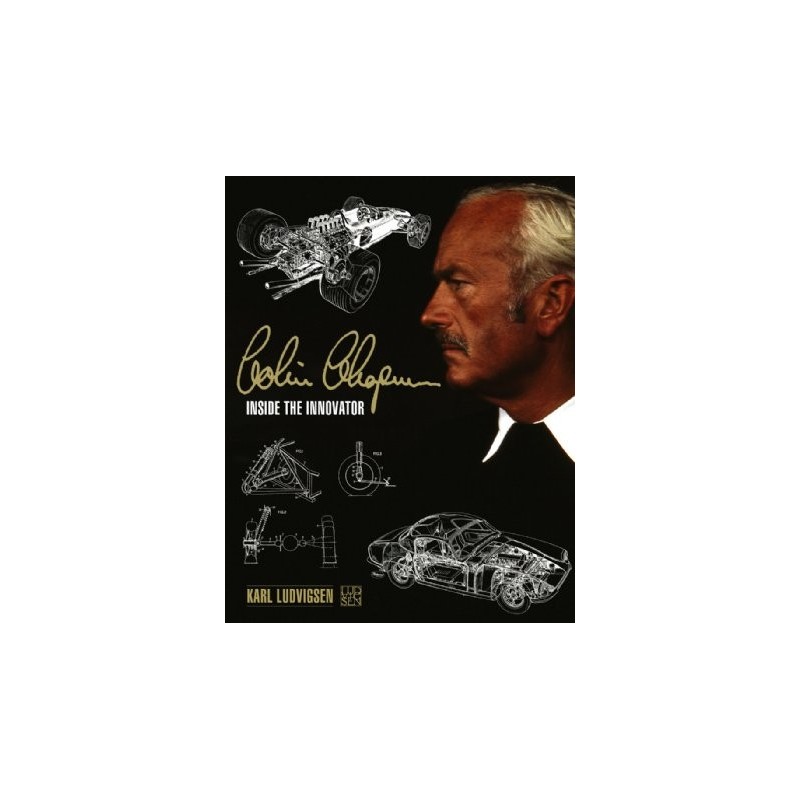- Used
- Out-of-Stock
- Unavailable
Colin Chapman, inside the innovator -
Karl Ludvigsen
Renowned as one of the greatest creative forces in the world of the automobile, Lotus’s Colin Chapman (1928–82) left a mixed legacy.
Renowned as one of the greatest creative forces in the world of the automobile, Lotus’s Colin Chapman (1928–82) left a mixed legacy. Was he an unparalleled innovator or an uninhibited exploiter of the uncredited ideas of others? In this landmark book, celebrated author Karl Ludvigsen gets to grips with the legend, digging deep beneath the skin of Chapman and his cars to explore and expose the motivations that drove this mercurial and controversial genius. Interviews with key figures in the Chapman story mesh with information from the author’s extensive archives to make this book a unique and compelling encounter between the engineer-innovator and the historian-investigator. Originally published in 2010, the book has become a standard text, not only on the man but also on the evolution and design of racing cars. Thus it is being reissued to meet continuing popular demand.
Conceiving concepts: assessment of the man whom Keith Duckworth described as ‘the most brilliant conceptual engineer I’ve known’. Engine enterprise: recognising that he was, in his words, ‘not an engine man’, Chapman made the best of engines available to him, whether Ford 1172 side-valve, BRM H-16, Cosworth DFV V8 or Pratt & Whitney gas turbine. Transmission topics: this chapter moves through Lotus-designed ‘Queerbox’ transaxles, four-wheel drive, automatic clutch actuation and much more. Suspension sagas: from makeshift suspension ingenuity on his first Austin-based special to espousal of active suspension just before his death, Chapman gained and exploited an advanced understanding of a car’s underpinnings. Structure stories: Chapman’s accomplishments in this field are numerous. Best-known among them are his monocoque innovations, in glass-fibre for the Elite road car and aluminium for the F1 Type 25. Whittling weight: obsession with lightness was a Chapman mantra throughout his life. It contributed hugely to the success of his cars, occasionally at an expense of strength and safety that scared off some drivers. Aerodynamic adventures: Chapman enjoyed aerodynamics — ‘a very absorbing subject’ — and was at the forefront of major F1 developments in this area. Discovering downforce: early insights with wings and wedge-shaped bodies, exemplified by his Types 56 (Indycar) and 72 (F1), led ultimately to the pioneering breakthrough of traction-enhancing ground effect, which reached full flowering with the F1 Lotus 79. Ludvigsen gives special attention to Chapman’s exploits at Indianapolis, where he and his cars transformed the nature of America’s premier race with stunning innovations far from the safety of home.
Data sheet
- Author
- Karl Ludvigsen
- Publishing Date
- 2021
- Collection
- EVRO
- Size
- 21 x 27 cm
- ISBN
- 9781844254135
- Illustration
- 550
- Number of pages
- 400 pages
- Language
- English
- Condition
- New
- Binding
- Hardbound
Reviews (1) - Review moderation
Already reported
Le client n'a pas laissé de commentaire.



